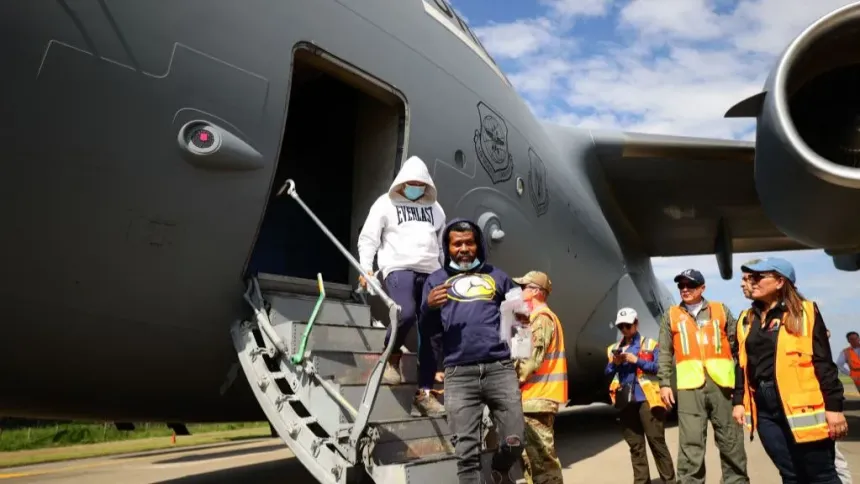The United States has reached bilateral deportation agreements with Honduras and Uganda, expanding President Donald Trump’s push to remove undocumented migrants through deals with foreign governments, according to documents obtained by CBS and shared with the BBC.
Under the agreement, Uganda will accept an unspecified number of African and Asian migrants who had sought asylum at the US-Mexico border, provided they have no criminal records. Honduras, meanwhile, will take in several hundred deported individuals from Spanish-speaking countries over the next two years, including families with children.
The Trump administration has framed these arrangements as part of a broader global strategy to disperse migrants to third countries, regardless of their national origin. So far, at least a dozen countries have signed similar agreements, ranging from Latin America to Africa. Recently, Paraguay became the latest nation to enter into a “safe third country” pact with Washington, while Rwanda agreed to receive up to 250 migrants from the US on the condition that it could approve each case individually.
Critics, however, argue the policy raises serious human rights concerns. Campaigners warn that deporting migrants to countries where they have no ties could expose them to danger, while the UN has cautioned that such transfers may violate international law. Rwanda, for example, has previously faced criticism over its human rights record and the risk of onward deportations.
Other nations, including Panama and Costa Rica, have already agreed to resettle hundreds of African and Asian migrants, while the US has reportedly approached Ecuador and Spain for similar deals.
The agreements follow a US Supreme Court decision in June that cleared the way for Trump’s administration to deport migrants to countries other than their homeland without allowing them to argue potential risks. The ruling drew a sharp dissent from Justices Sonia Sotomayor, Elena Kagan, and Ketanji Brown Jackson, who described it as “a gross abuse.”
With immigration remaining a centerpiece of Trump’s second term, these deals mark a significant escalation in his efforts to fulfil campaign promises. Yet, the controversy surrounding the practice highlights the growing clash between domestic political agendas and international human rights obligations

